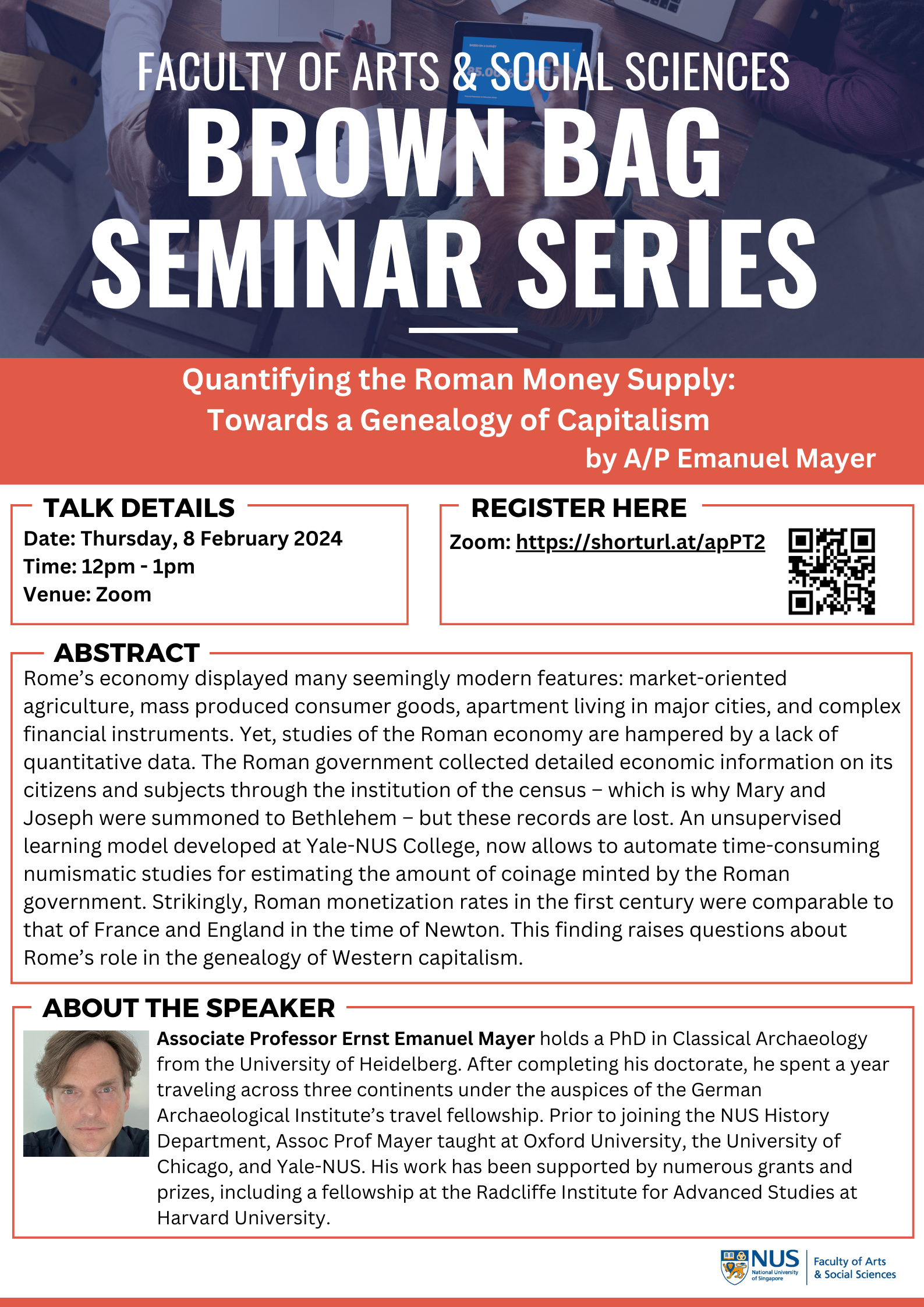SEMINAR | Quantifying the Roman Money Supply: Towards a Genealogy of Capitalism

Dear all,
You are cordially invited to the first session of the FASS Brown Bag Seminar Series in Semester 2 of AY23/24. A/P Emanuel Mayer (NUS History) will be presenting on “Quantifying the Roman Money Supply: Towards a Genealogy of Capitalism”.
Date: 8 February, 12 – 1pm
Venue: Online via Zoom
Register: Zoom
Quantifying the Roman Money Supply: Towards a Genealogy of Capitalism
Rome’s economy displayed many seemingly modern features: market-oriented agriculture, mass produced consumer goods, apartment living in major cities, and complex financial instruments. Yet, studies of the Roman economy are hampered by a lack of quantitative data. The Roman government collected detailed economic information on its citizens and subjects through the institution of the census – which is why Mary and Joseph were summoned to Bethlehem – but these records are lost. An unsupervised learning model developed at Yale-NUS College, now allows to automate time-consuming numismatic studies for estimating the amount of coinage minted by the Roman government. Strikingly, Roman monetization rates in the first century were comparable to that of France and England in the time of Newton. This finding raises questions about Rome’s role in the genealogy of Western capitalism.
Associate Professor Ernst Emanuel Mayer holds a PhD in Classical Archaeology from the University of Heidelberg. After completing his doctorate, he spent a year traveling across three continents under the auspices of the German Archaeological Institute’s travel fellowship. Prior to joining the NUS History Department, Assoc Prof Mayer taught at Oxford University, the University of Chicago, and Yale-NUS. His work has been supported by numerous grants and prizes, including a fellowship at the Radcliffe Institute for Advanced Studies at Harvard University.
If you have any queries, please email fassresearchevents@nus.edu.sg. We look forward to your attendance.

